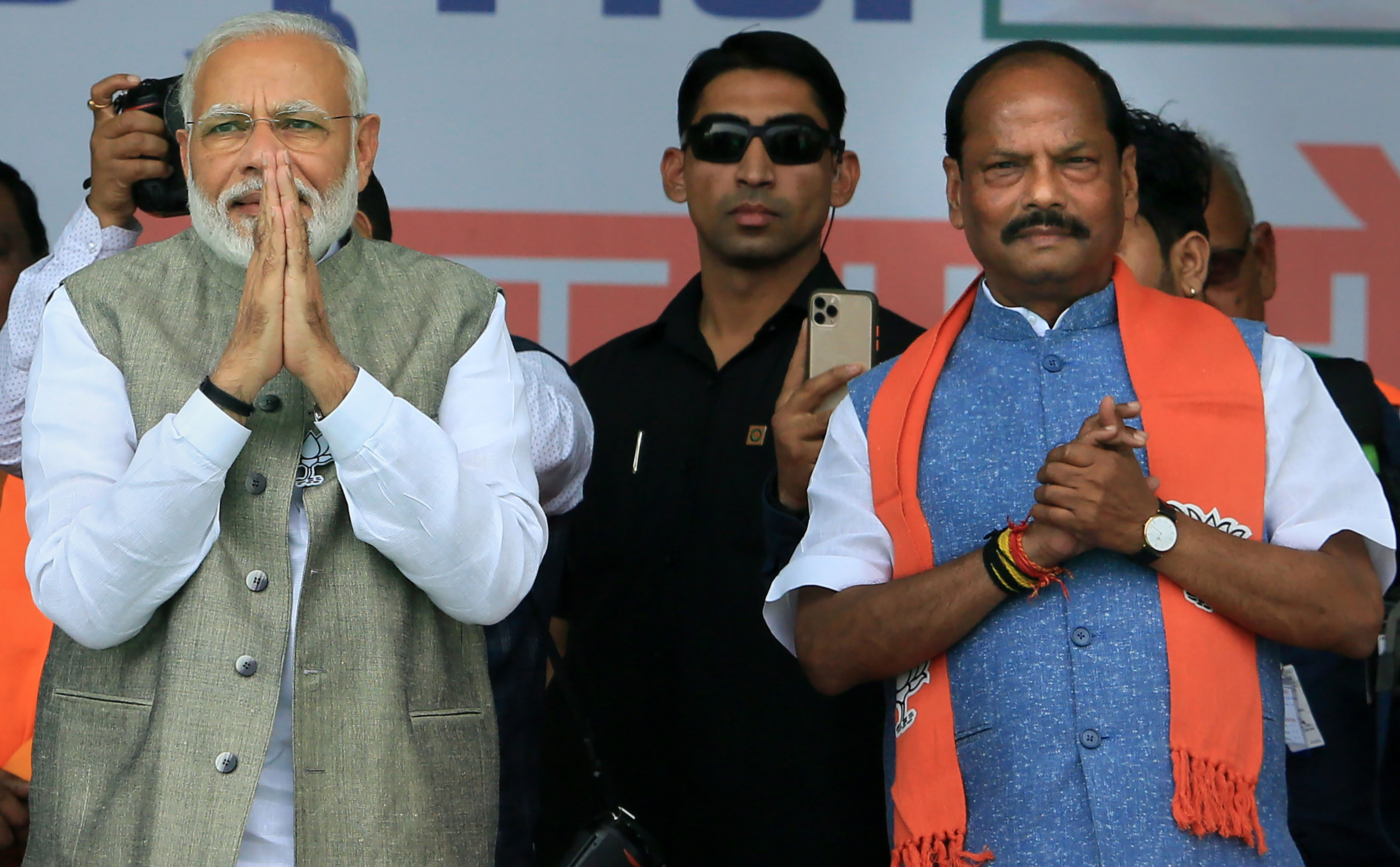Jharkhand shows that opposition has to consolidate the alliances
Updated by admin on
Monday, December 23, 2019 09:17 PM IST

Ranchi:
The Jharkhand result has established that the BJP is losing its political sheen across the country, and that the opposition parties just have to be patient in continuing the pattern of broad alliances to trounce the saffron party. Equally, parties like the Congress and JD(S) in Karnataka, and the Samajwadi Party (SP) and Bahujan Samajwadi Party (BSP) should also learn from the Jharkhand lesson, undo their hasty act of snapping alliances after just one defeat, and that they would do better by not blaming each other but by strengthening their combines, and better still, enlarge their combinations.
The larger message from Jharkhand is that evolution, continuation and strengthening of alliances is the only way out for the opposition, and even for the ruling party, to emerge victorious in elections in the country.
The defeat of the BJP in States like Rajasthan, Madhya Pradesh and Chhatisgarh, and loss of power in Maharashtra and now Jharkhand indicate that the pendulum is swinging against the BJP in State after State. Clearly, there is a decline in comparison to the vote share of 2014, 2017 and 2019 polls held across the country.
The inability of the BJP to retain the confidence of allies is also strikingly evident as seen in Maharashtra, where it lost a pre-poll ally like the Shiv Sena, and in Jharkhand, where it failed to renew its ties with the AJSU. In Maharashtra, the BJP killed itself in an overdrive by denying its ally an equal share of power, whether agreed to or not prior to the polls. In Jharkhand, the BJP could not provide enough seats for the 2014 ally, the AJSU, and in the process ended up as a weaker organization against the combined onslaught of the opposition. The Jharkhand result could also unnerve the Bihar ally, the JD(U) since border areas in Jharkhand have returned opposition candidates, trouncing the BJP. The BJP will have to be careful with Bihar Assembly elections round the corner.
On the other hand, the JMM, the Congress and the RJD managed to come together despite differences. The Congress High Command also seems to have sent out a clear message that the party is willing to take up a minor role (a la Indira Gandhi’s election strategy in the States); and is willing to play the role of a catalyst in bringing together various forces to fight the BJP.
In Karnataka, too, the Congress strategy of working together with the JD(S) would have worked but for the self-destruct tactics of its former CM Siddaramiah. Here, the national leadership of the Congress and JD(S) had decided to work together, but at the State level, some Congress leaders in Karnataka played spoilsport and allowed a BJP comeback. In 2019 LS polls, the Congress failed to bring about a strong pre-poll alliance in key States. The underlying message is that you can win if you have a strong enough alliance (like the Congress, JDU and RJD managed in Bihar against the BJP), but lose if you cannot hold alliances together.
While the BJP believes that Fear is the Key, the opposition believes that Alliance is the Key.
By R. Rangaraj